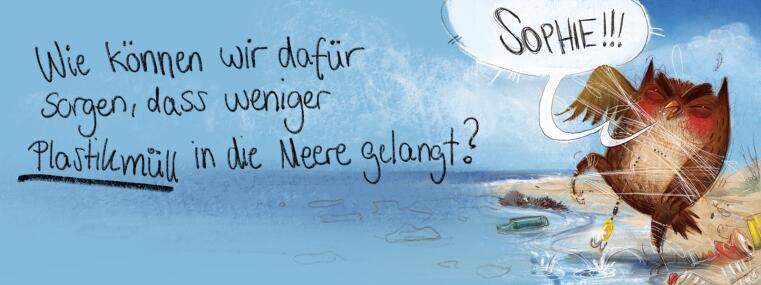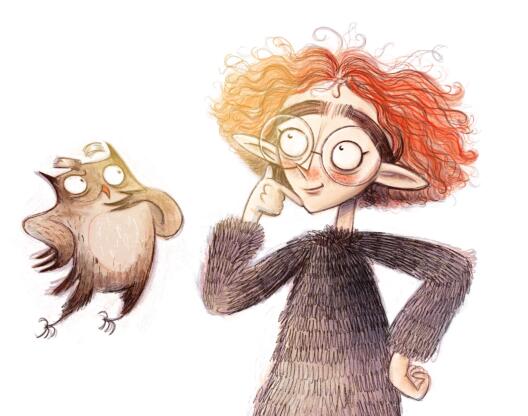Question for Science? Ask Sophie!
The participatory project ‘Ask Sophie!’, launched in 2020, invites citizens of all ages to submit their personal questions about science at www.frag-sophie.de [de] . The comic characters “Sophie” and the wise owl “Oho” answer citizens' questions on behalf of the scientists at the University of Münster and research answers if none are yet available. In collaboration with the scientists, exciting content is prepared in an easily understandable and accessible way for different target groups in order to create a fun and approachable access to science via the likeable character “Sophie” and her companion animal – for example, through science comics and brochures, a card game or illustrated postcards.
The science comics are published regularly on www.frag-sophie.de/comics [de] and other channels in collaboration with the accompanying researchers, the illustrator Gianluca Scigliano (Obscure Visions) and the project team.
The project was funded by the (then) Federal Ministry of Education and Research (BMBF) during its initial phase in 2020/2021 and for further development as part of Science Year 2022 – Participate!

The comic and format development is accompanied by the project’s own Instagram channel @frag_sophie which offers so-called ‘knowledge snacks’. These illustrated question-answer series provide easier access to science and research knowledge.
Our project team produces a free science booklet that explores the thematic focuses in greater depth. Specifically targeted at kids in primary school (third-grade reading level and higher), the booklet is suited for curious minds of all ages from 9 to 99. Print copies are available at locations around the city and region and can be downloaded digitally via the project website [de].
For more information, visit our website www.frag-sophie.de [de] and Instagram account (@frag_sophie). You may also contact us via email at: fragsophie@uni-muenster.de.

For researchers
The open questions [de] from citizens, displayed on the website, enable researchers and teachers to answer them on their own initiative and/or to address open questions in class – for example, together with students in the context of (subject-specific) seminars or transfer projects.
Interested scientists are welcome to contact the project coordination team [de].



